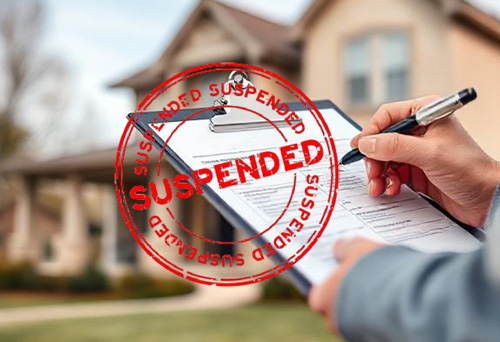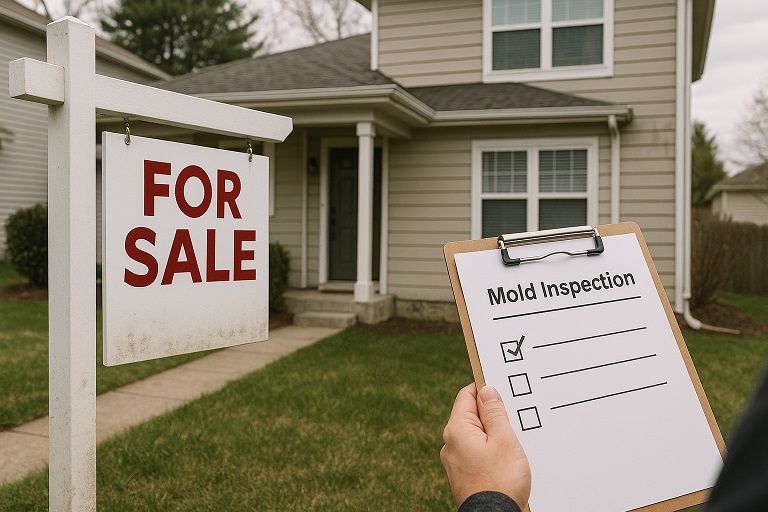Mold in a home can drastically affect your appraisal and even derail your mortgage approval. Learn how and why mold problems impact home value and loan decisions—and what you can do to fix it fast.
Mold isn’t just a nuisance—it’s a deal killer. If you’re buying or selling a home, mold can lower the appraisal value and even block loan approval. Lenders and appraisers treat mold as a red flag, and unless it’s dealt with properly, your dream deal might fall apart.
Whether you’re a homeowner preparing to sell, a buyer securing a mortgage, or a real estate agent helping a client through the process, understanding how mold impacts home appraisals and financing is essential.
What Is a Home Appraisal—and Why Mold Matters

A home appraisal is an unbiased estimate of a property’s market value. Lenders use it to determine how much money they’re willing to lend for the purchase.
If visible mold, moisture damage, or musty odors are discovered during the appraisal inspection:
- The appraiser may lower the home’s value
- The home could be flagged as “subject to repairs“
- The loan could be delayed or denied until mold remediation is complete
Why Appraisers Take Mold Seriously:
- Mold is a health hazard, especially black mold
- It indicates possible underlying structural or water issues
- It raises the risk of future damage and devaluation
Common Ways Mold Derails Home Appraisals

- Visible Mold in Basements, Bathrooms, or Attics
Even small patches can raise red flags and require professional inspection or removal. - Water Stains or Dampness
Signs of leaks—past or present—signal possible hidden mold. - Musty Smells or Poor Ventilation
Odors hint at moisture problems and can prompt a deeper look. - Unfinished Mold Remediation Work
If cleanup is started but not completed, lenders may freeze the deal.
How Mold Affects Mortgage Loan Approvals

Most lenders—especially those issuing FHA, VA, or USDA loans—require the property to be safe and habitable. Mold can raise safety concerns, especially if it’s toxic or extensive.
Here’s How Mold Can Impact Loan Approvals:
- FHA/VA Loans:
These loans are strict about livability. Any sign of mold can trigger a demand for professional remediation before approval. - Conventional Loans:
Lenders may require an updated appraisal or inspection to confirm the mold has been removed. - Loan Delays:
Mold issues must often be fixed before closing, delaying timelines and increasing buyer/seller stress. - Loan Denials:
If the issue is severe, some lenders may reject the property entirely as too risky.
How to Avoid Mold Issues in the Loan Process

Whether you’re buying or selling, here’s how to keep mold from messing up your mortgage:
For Sellers:
- Get a pre-listing mold inspection if you suspect issues.
- Fix leaks and humidity problems before showing the home.
- Hire a certified mold remediation expert for cleanup—not a handyman.
For Buyers:
- Always request a home inspection—and ask about moisture damage.
- Include a mold contingency in your purchase agreement.
- Don’t skip mold testing just because the house “looks clean.”
Can Mold Be Fixed in Time to Save the Deal?

Yes—but you must act fast.
Steps to Take:
- Schedule mold remediation immediately.
- Fix the root cause (like leaks, poor drainage, or ventilation).
- Document everything (before/after photos, invoices).
- Request a re-inspection or updated appraisal.
If everything checks out, your deal can move forward—often with no long-term issues.
Final Thoughts: Don’t Let Mold Stop Your Mortgage
Mold can seem like a small problem, but in real estate, it can have big consequences. From lower appraisals to denied loans, mold is a top reason deals fall apart at the last minute.
But with early detection, proper remediation, and clear documentation, mold doesn’t have to kill your deal.


